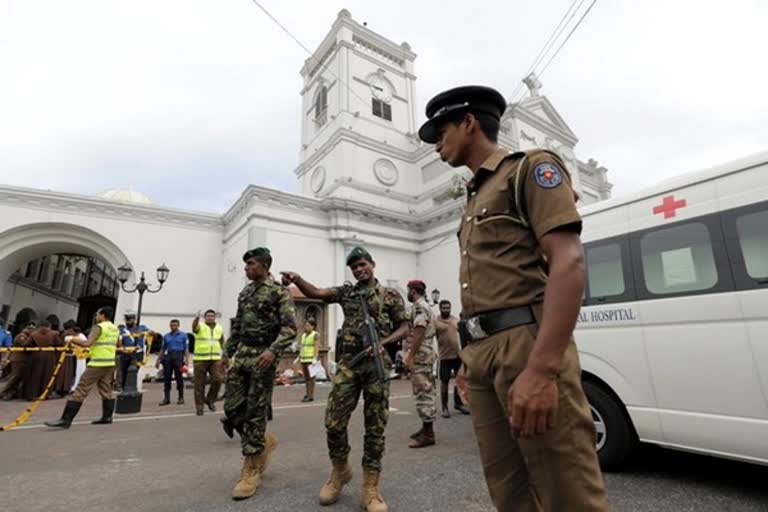Colombo: Defence Secretary Hemasiri Fernando on Thursday resigned accepting responsibility for the Easter Sunday bloodbath in Sri Lanka even as security forces continued a search for accomplices of the suicide bombers who killed and injured hundreds.
The government also banned the use of all drones and unmanned aircraft within the Sri Lankan airspace with effect from Thursday and also kept its new visa-on-arrival programme, which was to be implemented from May 1, on hold due to the security situation in the island nation.
Fernando said after submitting his resignation that while there was no failure on his own part, he was taking responsibility for the failures of some institutions which were under his command.
President Maithripala Sirisena, who himself has come under attack from the opposition for failing to prevent the mass killings, had earlier asked the Defence Secretary and the police chief to quit.
Tourism, Wildlife and Christian Religious Affairs Minister John Amaratunga said that investigations had revealed foreign links to the attacks and the government did not want the visa-on-arrival facility to be abused.
Tourism was one of the worst hit industries following the deadly blasts on Sunday in three Sri Lankan cities, primarily in and around Colombo.
The Islamic State has claimed responsibility for the deaths of 359 people and injuries to over 500 but Colombo has blamed a local Muslim group, the National Thowheed Jamath (NJT).
The Sri Lanka Police released photographs of six young suspects - three males and three females - wanted in connection with the bombings. The Criminal Investigation Department (CID) sought public assistance to trace them.
The six were identified as: Mohammad Ivuhaim Sadiq Abdul Haq, Mohammed Ivuhaim Shaid Abdul Haq and Mohammed Casim Mohammed Rilwan (all men) and Fatima Latif, Pulasthini Rajendran alias Sarah, Abdul Cader Fatima Kadir (all women).
It was not clear if the six were linked to the National Thowheed Jamath.
On Thursday, security forces set up checkpoints and stepped up random checking of vehicles across Sri Lanka.
In the morning, at around 9 a.m., a minor explosion took place in a garbage dump behind the Magistrate's Court in Pugoda, 36 km from Colombo, reported Xinhua news agency.
After the blast, police advised the general public not to panic, said the Daily Mirror.
In an indication that all was not well in Sri Lanka, Israel's Counter-Terrorism Bureau raised the threat level to indicate a "high concrete" mark and advised travellers to leave the island and avoid visiting it in the near future, CNN reported.
Although four days have passed since the bloodbath, Sri Lanka remains on the edge. Schools and colleges remain shut and a general sense of insecurity prevails.
Prime Minister Ranil Wickremesinghe told CNN that some attackers responsible for the Easter Sunday bombings were being monitored by the intelligence services but there was not "sufficient" evidence to put them in custody before the attacks.
He reiterated that the attackers were middle- and upper-middle class and had been educated abroad. He added that the profile of the suspected bombers was "surprising".
Police are holding the wealthy father of two of the suicide bombers on suspicion of aiding and abetting his sons to carry out Easter Sunday attacks.
Mohamed Yusuf Ibrahim, a spice moghul, was arrested on Sunday following attacks at hotels and churches. His adult sons, Imsath Ahmed Ibrahim and Ilham Ahmed Ibrahim, blew themselves up in two different attacks earlier that day.
Also Read: Father of two of bombers arrested: Sri Lanka PM
Police spokesman Ruwan Gunasekera said five safe houses had been raided in the country.
More than 70 suspects have been taken into custody on a range of charges. Of these, four were female and all are Muslims. None is a foreigner.
The Easter Sunday marked the bloodiest day in Sri Lanka since the end of the civil war a decade ago.



